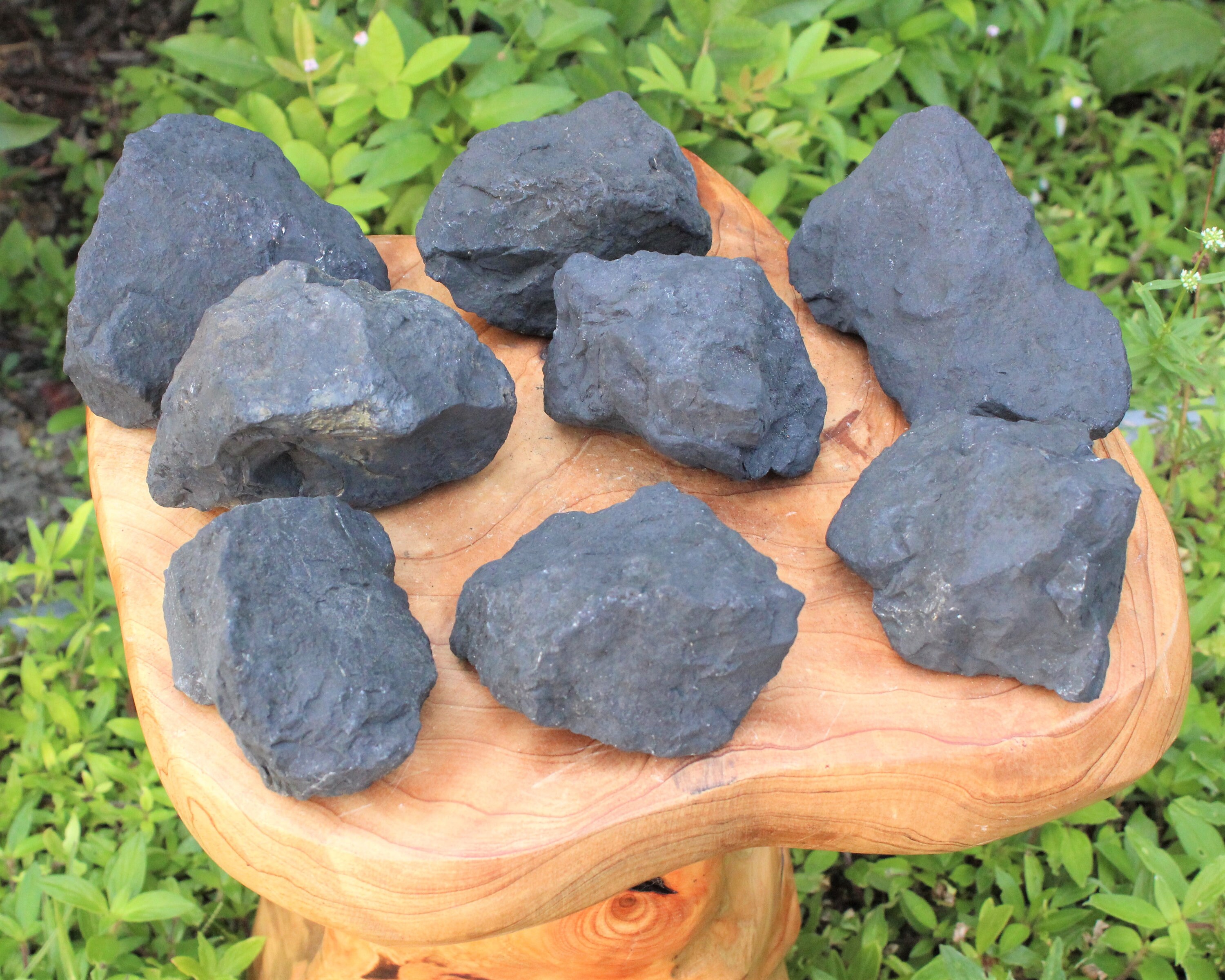Shungite - A Natural stone With Anti-Inflammatory and Grounding Properties

Shungite is a black mineraloid that has been found throughout the Karelia region of Russia. It is a mineral deposit located close to Shunga, a village. Shunga. The mineral has been discovered in a number of different areas and is believed to be a powerful anti-inflammatory agent. Additionally, it has been discovered to possess qualities of grounding and is made up of heavy metals like copper and zinc.
Origin story
Shungite is a carbon mineral. It has a unique chemical composition that distinguishes it from other rocks and minerals. Some of its natural properties include fullerenes that encapsulate water.
It is believed to have been created about two billion years ago. It was found in the Karelian region of Russia. The name "shungite" is derived from the village of Shun'ga.
The 17th as well as 18th century, the mineral had a reputation for healing. The locals would use it for treating ailments as well to disinfect. It was also used to treat infections. Peter the Great realized its advantages and promoted its use.
In the time that the Russian army attacked Sweden Shungite was a crucial part of their success. Many soldiers were poisoned by ore they were processing, however the shungite water cured them all.
Composition
Shungite is an amorphous carbon rock with a distinctive chemical composition. It's the result the interplay between individual elements that create complex organometallic complexes. In addition, it has an extremely high electrical and thermal reactivity.
Numerous investigations have taken place with Shungite in the past. This includes research about shungite's sorption characteristics, antioxidant properties, and therapeutic properties.
The mineral shungite can be described as a carbon amorphous mineral that has high reactivity in electrical and thermal processes. This is because of the presence of the carbon atoms hybridized. A unique spherical shape is formed by the atoms that comprise the hybridized carbon. In the shungite's components are FeO, MgO and TiO2.
The mineral shungite, an allotropic form of metastable carbon which is distinguished by its high adsorbent capacity as well as an extremely high reactivity at elevated temperatures. It is also known to be a source of minerals like REE.
Anti-inflammatory properties
Shungite's anti-inflammatory properties offer a wide range of uses. Its antioxidant properties help to help to reduce superoxide production, lower ROS/RNS levels, and inhibit inflammatory cytokine reaction. These properties may help protect skin against UVB irradiation, and could help people suffering from the oxidative stress disorder.
In addition to its antioxidant effects Shungite also protects cells from harming electromagnetic fields. This suggests that it may be beneficial in cancer treatment. Furthermore, it may act as an antihistamine. While further research is required to confirm these findings, the study highlights the potential of shungite in fighting oxidative and inflammatory diseases.
The year 2003 saw a research study was conducted to determine the impact of shungite in rats. Results showed that shungite slowed down the production of ROS and lowered the inflammatory cytokine level, and increased ROS-scavenging enzymes. Furthermore, it restored the the imbalance of inflammatory cytokine caused by UV radiation.

Heavy metals released by shungite samples
Shungite samples released various heavy metals into water. Lead, cadmiumand zinc, copper and arsenic were identified. The levels of these elements were determined in drinking water prior to and after contact with shungite.
Shungite is a carbon-containing natural mineral. It has a high absorption capacity and a distinct chemical composition. An investigation was conducted to examine the sorption properties of shungite in relation to heavy metals. Furthermore, the effects of shungite's sulfate on the adsorption of artificially increased copper ions in drinking water were also investigated.
The sorption of Cu(II) at initial levels of 2,500 mg/L were examined. The results revealed that shungite has good adsorption properties toward copper. However, it was discovered that the sorption properties decline when exposed for 21 days.
Grounding shungite sphere , a black mineral, is believed to have incredible grounding properties. It's a rare stone that has lots of potential for use in health and science fields.

Alongside its grounding properties shungite can also be used as a water purifier that is natural. It has been proved to get rid of harmful bacteria as well as other toxins from water.
Shungite has a high carbon content, suggesting it was a result of biological processes that occurred within the seas and oceans of the ancient world. As a result, it is a potent natural healer. The use of shungite to heal is a practice that has been used in Russia for hundreds of years.
Another key characteristic of shungite is its ability to absorb and deflect electromagnetic smog. This helps people stay well and free of dangerous electromagnetic radiation.
Metaphysical nature
Shungite is an old stone with many benefits. It is a very grounded, protective and healing stone. The mineral is also useful for electromagnetic fields as well as your physical body. According to the purpose, a person can expect different experiences from using the stone.
One of the most significant advantages of this stone's anti-inflammatory qualities is that it has antibacterial properties. Fullerenes are carbon-based compounds that are contained inside the crystal, serve as an antioxidant and have significant antiviral and antibacterial abilities.
Another benefit of Shungite is its capacity to amplify other metaphysical power. It is believed to be an effective shield against harmful electromagnetic fields, helping to protect your body from harmful influences.
